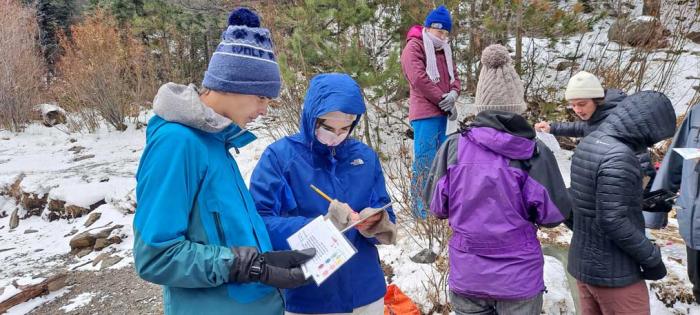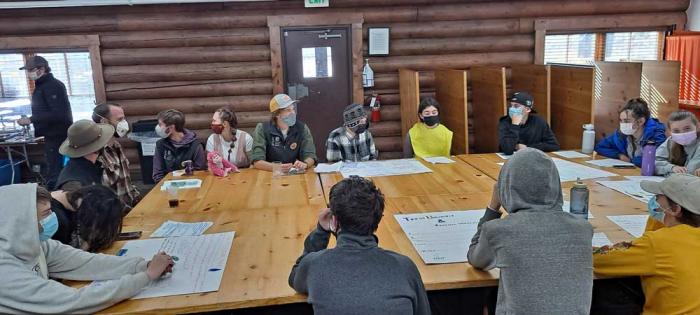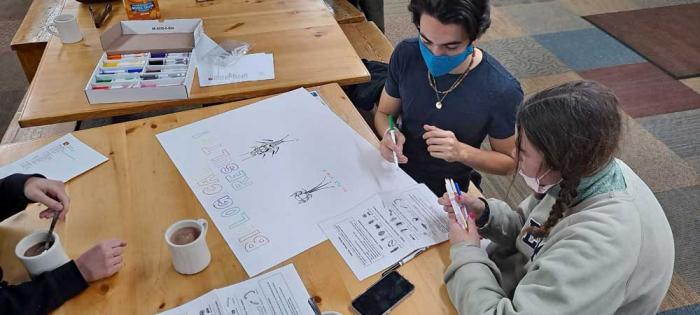Teaching about Colorado’s toughest issue: water
For three days in October, a group of high schoolers from the Front Range and West Slope hiked together and learned together about one of the most contentious — yet unifying — issues in Colorado: water.
As part of the H20 Outdoors camp at the Keystone Science School, they learned about water quality, then hiked up high-country streams to record temperature levels and test for minerals. They searched for invertebrates in the creeks, another indication of environmental health.
They stood in 60-mph wind gusts atop the Continental Divide, the ridge that dictates whether water will end up in the Atlantic or Pacific. And they learned how the different groups use and think about water differently.
“When you get a bunch of high school students up there at the camp, immersed in learning about water in Colorado from all different perspectives, they come out of it so much smarter,” said Matt Bond, manager of Denver Water’s Youth Education Program.
“They’ve learned about the issues not only through their eyes but also through the eyes of the stakeholder role they play during the camp, and the other stakeholder roles other students represent. That sticks with them.”
Check out these sights and sounds from the October 2016 H2O Outdoors camp.
The three-day camp often draws students who aren’t familiar with Colorado’s mountains or the role they play in the water cycle.
Once they arrive, each student is assigned the role of a water stakeholder — farmer, water utility manager or Trout Unlimited president, a miner or oil and gas driller, a ski resort’s snow making manager, chief of a river district or an outfitter at a whitewater river rafting company — and then learn the impact of water on their sector of the state’s economy, culture and infrastructure.
The three-day experience ends with a town hall meeting where the student stakeholders discuss solutions on how to manage the limited resource.
“The town hall is a great way to teach kids how to work together and discover that everyone has an important voice,” Bond said.
Denver Water and Aurora Water for years have partnered with Keystone Science School to put on H2O Outdoors, one of the pillars of Denver Water’s Youth Education Program.
The annual water-focused camp was canceled in 2020 due to the pandemic but reconvened this year with indoor masking and safety protocols in place.
“It was awesome, being able to get back and work with the students in person. It felt like a little bit of normal again,” Bond said.
Learn more about Denver Water’s Youth Education program.
“Building awareness is the foundation of education. People can’t know about something or learn about something until they know it exists. With this camp, they combine their classroom experiences with being out in the field with others from across the state to get a deeper experience around water.”
The students learn about the physical, chemical and biological properties of water, as well as how reservoirs and dams work.
“They get in the water, touch the water and learn what it takes to bring water across the divide,” Bond said.




